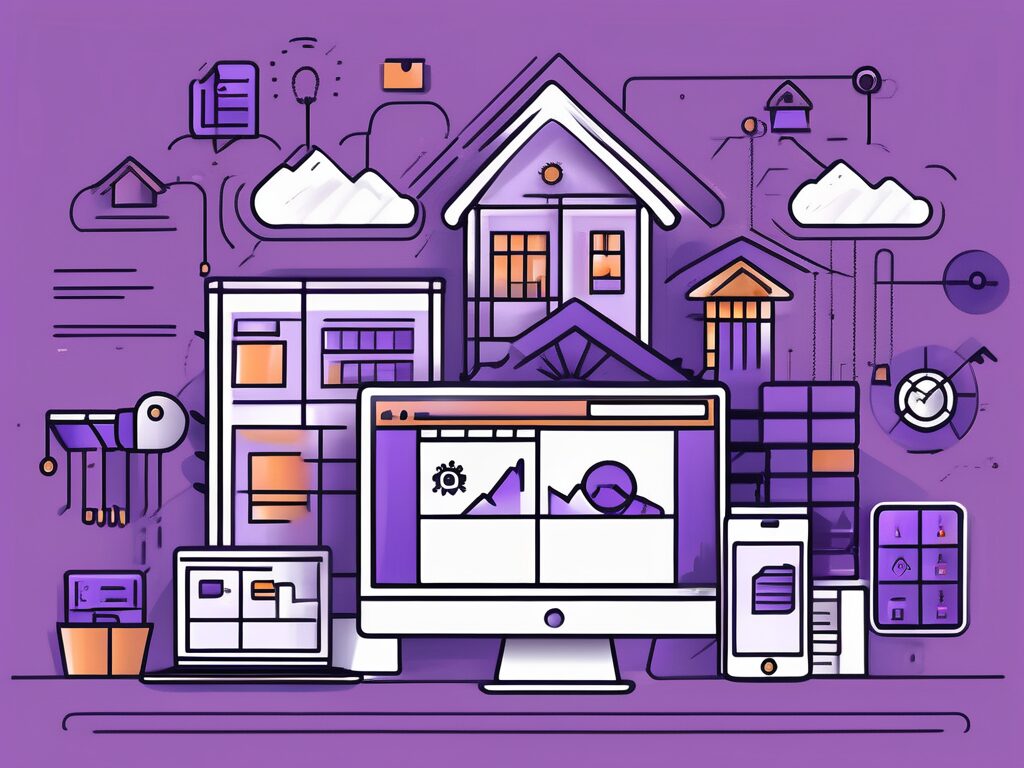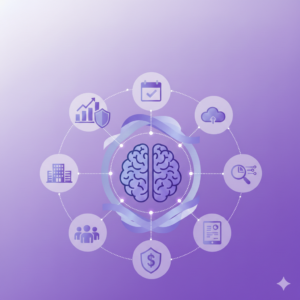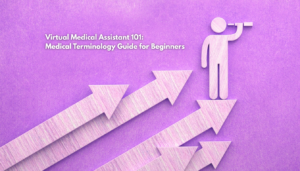How CRM Database Management by Virtual Assistants Enhances Property Management
08 Oct 2024 By: Maria Rush
Updated
Virtual assistants (VAs) are revolutionizing property management by streamlining CRM database management. This article examines how VAs improve these processes, driving better results.

Understanding CRM Database Management
CRM database management is key to building strong relationships with clients and tenants. It simplifies information handling and improves communication.
A solid CRM database management system gathers and organizes data on property owners, tenants, and leases. This helps track interactions and gain insights.
Efficient CRM database management allows property managers to improve services. An organized system provides quick access to important data, streamlining daily tasks. The ability to segment data by location, lease duration, or tenant demographics helps customize outreach and marketing for more relevant communication.
Integrating CRM database management with other property tools creates a smooth workflow. For example, connecting CRM with accounting software gives real-time financial updates, giving managers a complete view of operations without switching platforms.
The Role of CRM in Property Management
CRM in property management is crucial for building strong relationships. It centralizes important data and helps property managers respond quickly to inquiries.
A robust CRM system allows property managers to analyze tenant feedback. This analysis improves tenant satisfaction and retention. By gathering feedback through surveys or direct communication, property managers can spot common concerns and make changes that enhance the living experience.
CRM systems also enable proactive communication. Property managers can send newsletters, event updates, or maintenance notices, keeping tenants informed and engaged. This strengthens relationships and fosters a sense of community within the property.
Key Features of CRM Database Management
Several features distinguish effective CRM database management. First, it provides contact management, making tenant and owner details easy to access.
Second, powerful reporting tools offer insights into occupancy rates and financial performance. These insights help guide strategic decisions. By tracking trends, property managers can predict vacancies and adjust marketing strategies to maintain healthy occupancy.
Additionally, automated communications save time. Alerts and reminders keep property managers organized and proactive. For example, automated lease renewal reminders allow timely tenant discussions, reducing unexpected vacancies. Customizable templates for emails and messages also help property managers maintain professionalism while saving time on routine tasks.
The Emergence of Virtual Assistants in Property Management
Virtual assistants have become vital partners in property management, handling various tasks so managers can focus on strategy. In an industry where juggling responsibilities is common, VAs streamline processes and boost productivity.
The rise of remote work has led many companies to hire VAs, offering flexibility and access to global talent. Virtual assistants bring diverse skills and experiences, enriching property management and encouraging more innovative solutions. This allows teams to find the right fit for tasks while enhancing problem-solving approaches.
Tasks Performed by Virtual Assistants
Virtual assistants handle various tasks that support property management, such as managing tenant inquiries, organizing schedules, and updating databases. This ensures smooth communication, vital for maintaining tenant relationships and satisfaction.
VAs also take on administrative duties like booking appointments and coordinating maintenance, freeing property managers to focus on complex issues. These administrative responsibilities share similarities with virtual medical administrative roles, where assistants support healthcare operations remotely and efficiently. Additionally, they assist with marketing by managing social media and creating promotional materials for available properties. This support boosts the property’s visibility and engages potential tenants more effectively.
Benefits of Using Virtual Assistants
Integrating virtual assistants in property management offers several benefits. First, they reduce operational costs by cutting overhead. Property management firms can save on expenses like benefits and office space while maintaining service quality.
Second, VAs boost efficiency. By handling time-consuming tasks, managers can focus on strategic growth and tenant satisfaction, dedicating more time to long-term goals like property improvements or market expansion. Lastly, VAs provide scalability. Property teams can easily adjust the number of assistants as needed, responding quickly to increased demand or unexpected challenges, ensuring smooth operations year-round.
Integration of CRM Database Management and Virtual Assistants
The synergy between CRM database management and virtual assistants is crucial for optimizing property management. VAs can use CRM systems to enhance service delivery, making interactions more personalized and efficient.
This integration enables real-time updates, ensuring information stays current. Timely communication with tenants and property owners becomes seamless, which is vital in a fast-paced rental market where quick responses can greatly impact tenant satisfaction.
How Virtual Assistants Utilize CRM
Virtual assistants use CRM systems to manage data efficiently. They can input tenant details, track inquiries, and log communications, building a comprehensive and easily accessible database.
This streamlined communication keeps all parties informed on important matters. VAs can automate routine updates for greater efficiency while also enabling personalized follow-ups, which boosts tenant engagement and retention.
The Impact on Property Management Efficiency
The combined strengths of CRM and virtual assistants greatly boost efficiency. Streamlined operations allow property managers to handle more properties with less stress, focusing on growth rather than administrative tasks.
Quick access to essential information saves time, enhancing tenant satisfaction and improving landlord-tenant relationships. VAs ensure maintenance requests are logged and addressed promptly, fostering trust and reliability, which is key to long-term tenant retention. CRM data also offers insights into tenant preferences, enabling property managers to tailor services and better meet client needs.
Future Trends in CRM and Virtual Assistant Use in Property Management
The property management landscape is constantly evolving. As technology advances, CRM systems and virtual assistants will play even bigger roles.
Managers must stay updated on these changes to fully leverage new tools. Future trends suggest a growing reliance on automation and data-driven decision-making to improve efficiency and service quality.
Technological Advancements and Their Implications
Technological advancements will reshape property management. AI and machine learning will improve CRM systems, making data analysis more intuitive and efficient.
Smart home integrations will boost tenant engagement, enhancing satisfaction and operational flexibility. Predictive analytics will help property managers anticipate tenant needs and market trends, enabling proactive decision-making.
By analyzing historical data, managers can identify patterns like peak maintenance times or popular property features. This foresight streamlines operations and personalizes the tenant experience, increasing retention rates.
Preparing for Future Changes in Property Management
To remain competitive, property managers should invest in continuous training to stay updated on new technologies and techniques.
Embracing innovative tools that enhance efficiency is essential. Staying ahead of trends ensures they meet the changing needs of tenants.
Collaborating with tech providers is also beneficial. Partnering with developers and startups gives managers early access to tailored solutions. This proactive approach improves operations and positions them as leaders ready to adapt to the evolving property management landscape.
Trending Now
The global CRM software market is expanding rapidly. This growth is driven by tech advancements, rising demand, and major investments. Products are tailored to sectors like BFSI, healthcare, retail, and manufacturing. Growth patterns vary by region.
North America leads due to strong infrastructure and innovation. Asia-Pacific is emerging, fueled by urbanization and higher incomes. The market is competitive, with Salesforce, Microsoft, and Oracle dominating. However, smaller niche firms are gaining ground through innovation.
Conclusion
The collaboration between CRM database management and virtual assistants marks a promising shift in property management. This integration boosts operational efficiency, benefiting both tenants and property owners.
Ready to elevate your property management game? Let HelpSquad streamline your operations with our expert virtual assistants and around-the-clock customer service team. Our bilingual agents are equipped to handle your CRM database management needs, ensuring you stay ahead in the competitive property management landscape. With rates starting at just $8.50 per hour, there’s no better time to boost your efficiency. Start your trial today and experience the HelpSquad difference!


